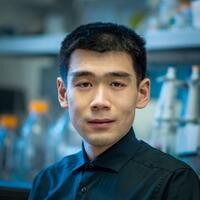Steven Tang

Steven Tang joins Yale’s Department of Molecular Biophysics and Biochemistry as an Assistant Professor in January 2024. Tang brings a research program focused on the cell-surface proteome and the molecular machines for cell-cell fusion in human development and disease. His programs combine biochemistry, structural biology, protein engineering, and cell biology. Before coming to Yale, Tang was a Merck Fellow of the Damon Runyon Cancer Research Foundation at Stanford University. His postdoctoral work has pioneered strategies for small molecules targeting “undruggable” protein-protein interactions in cancer immunotherapy and developed a safe, effective, low-cost, and room-temperature stable SARS-CoV-2 nanoparticle vaccine. Supported by an NIH K99/R00 award, Tang’s research has focused on cell-surface recognition and sperm-egg membrane fusion in mammalian fertilization. His current program expands on this work to interrogate the long-standing mysteries in cell-cell membrane fusion. The long-term goal of his lab is to establish the design principles of cell-cell fusion and to inform therapeutic strategies for reproductive health, regenerative medicine, and infectious diseases. Tang completed his Ph.D. at Cornell University, studying the molecular mechanisms underlying the activation, assembly, and membrane remodeling of the endosomal sorting complexes required for transport (ESCRT-III) complex in multivesicular endosome biogenesis.